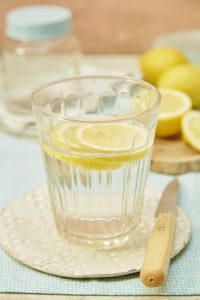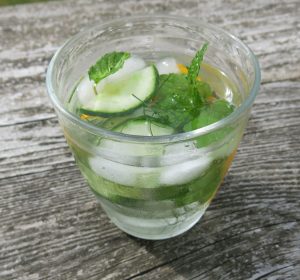Lifestyle
How safe is bottled water?
In theory, bottled water should be hard to sell. We’re lucky enough to live in a country where a tap is rarely more than a few steps away, and the average cost of a litre of tap water is 0.1p. According to the World Health Organization, bottled water works out to be up to 1000 times more expensive than the tap variety.
Every year, the world uses an unthinkable 13 billion plastic bottles, and while most are now made of fully recyclable PET (polyethylene terephthalate), only around 55% of these are recycled. The rest either ends up in landfill or the ocean. When it is so easy to access clean water from the tap, why do we insist on importing water from countries as far-flung as Fiji?
Behind the brands of bottled water
It seems as though consumers are at the mercy of a lot of savvy marketing. Labels promise everything – from volcanic rock filtration to intelligence-boosting electrolytes – but it’s difficult to verify these health claims or establish whether they’re really worth the cost. ‘Mineral’ and ‘spring’ waters are commonly seen on our supermarket shelves.
For those paying a premium, the mineral variety originates from a protected source, and cannot be altered in any way, with the exception of adding carbon dioxide for fizz.
While spring water must also originate from underground springs, unlike entirely pure mineral water, spring water is allowed to be treated. Often, the cheapest water for sale in our supermarkets is simply labelled ‘bottled’ water. It’s also sometimes known as ‘table’ water. This can quite literally come from the mains, and – believe it or not – up to a third of the water on supermarket shelves is exactly that. In particular, check the labelling of own-brand varieties here.
Is bottled better than tap water?
So, is bottled any better? Some studies suggest that the minerals are genuinely beneficial for our bodies. Water with origins in young limestone bedrock, for example, tends to have higher concentrations of calcium and magnesium than tap water. According to the World Health Organization, these essential minerals are thought to help reduce the tendency of developing cardiovascular diseases, cancer and osteoporosis.
That said, in most parts of the UK, tap water – particularly in Eastern regions – is already classified as ‘very hard’, meaning it contains a high concentration of calcium and magnesium ions. There are plenty of other ways to include calcium and magnesium in our diets, such as through dairy products, green leafy vegetables, nuts and oily fish, so we needn’t rely on bottled water.
 Chlorine in tap water
Chlorine in tap water
Some opt for bottled water because of an aversion to chlorine. Tap water is chlorinated as routine, and it is possible that the good bacteria in our gut might be damaged by it. While it is difficult to measure how it impacts gut bacteria, studies have shown that chlorinated tap water can temporarily damage microbes found in the soil.
This does not mean we should avoid tap water. It is worth remembering that the chemicals present in our water are stringently monitored. In fact, they are necessary to prevent the spread of water-borne bacterial infections. For this reason, certain experts actually recommend tap water over bottled varieties.
Microplastics in bottled water
Earlier this year, a study found that an average of ten plastic particles wider than a human hair are found in a litre of bottled water, along with 300 smaller particles, likely to be microplastics.
Latest estimates have found that more than 90% of the most popular bottled water brands contain microplastics, with Nestlé Pure Life water found to have as many as 10,000 pieces of plastic per litre. The side effects that these may have on our bodies are not yet known, so if you need to buy an emergency bottle of water on the go, opt for glass or tins.
Opt for filtered
For those keen to avoid chlorine, the simplest solution is to invest in a water filter. These commonly use charcoal – a porous, activated form of carbon – to absorb and attract impurities such as heavy metals, manmade chemicals and pesticides. Using a filter can also greatly improve the water’s taste. Some new reusable water bottles contain a charcoal water ‘filter’ stick, which attracts contaminants. You can also pop one in your water jug, and there is no plastic to be dealt with when the stick reaches the end of its use.
Weighing up expert opinion alongside the sobering environmental cost of bottled water, it seems our best bet is to shun plastic water bottles, invest in a filter, and go back to the humble tap.


 Chlorine in tap water
Chlorine in tap water



